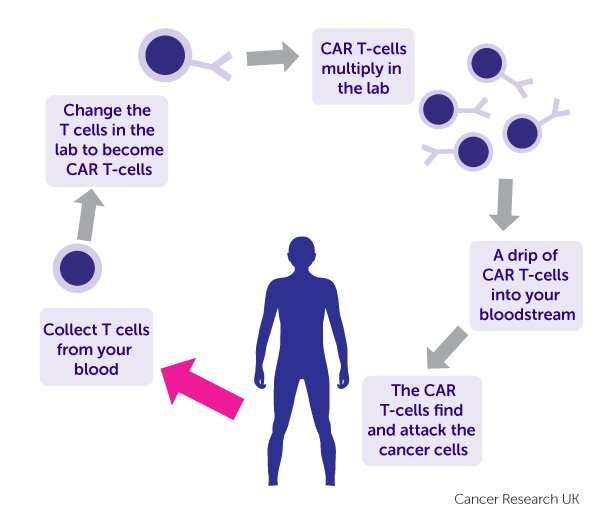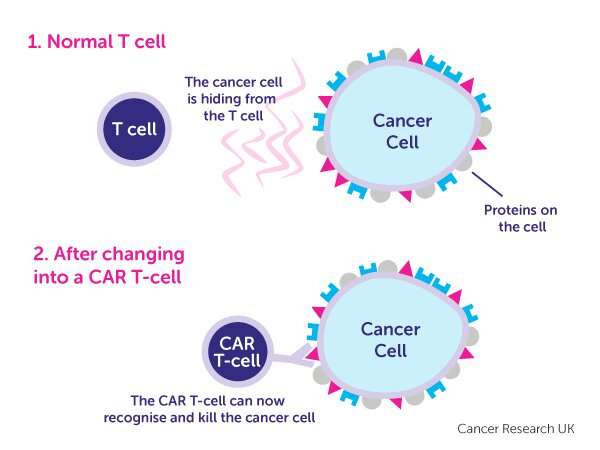
Cancer Research UK is collaborating with Aleta Biotherapeutics (Aleta) to trial a new therapy that ‘reboots’ a treatment for some people with blood cancer whose cancer starts to come back.
The new therapy, called ALETA-001, aims to boost a treatment called CAR T-cell therapy, which takes some of a patient’s immune cells and alters them to attack cancer.
Cancer Research UK’s Center for Drug Development will fund, sponsor and conduct the clinical trial of ALETA-001, which will involve people with B cell lymphoma and leukemia.
Nigel Blackburn, Cancer Research UK’s director of drug development, said this is a landmark collaboration for Cancer Research UK.
“It’s the first-in-human trial for a new drug that reboots CAR T-cell therapy, and we look forward to progress its early clinical development with Aleta.”
Rebooting CAR T-cell therapy
“CAR T-cell therapy has been transformative in treating patients with hard-to-treat blood cancers, but many will see their cancer return and treatment options begin to run out,” said Blackburn.
Around half of the patients treated with CAR T-cell therapy relapse, mostly because their cancer cells stop producing the CD19 protein that CAR T-cells are looking for.
When this happens, patients have few other options.

ALETA-001 acts as a ‘reboot’ for CAR T-cell therapy, attaching to a different protein called CD20 and ‘recoating’ the cancer cell with CD19. The CAR T cells can then recognize and attack the cancer cells again.
“ALETA-001 uses a simple yet elegant method to redirect a patient’s circulating CD19 CAR T cells against cancer cells expressing CD20, and we hope this could be a new treatment avenue for blood cancer,” said Blackburn.
Taking ALETA-001 to the clinic
The first trial will enroll patients with B cell lymphoma or leukemia who have received CD19 CAR T-cell therapy but did not achieve a complete response or whose cancer has come back.
Led by a team at The Christie NHS Foundation Trust in Manchester, it will be the first time that this type of therapy has ever been tested in humans.
A key aim of the trial is to find out the right dosage of ALETA-001. After this, it will be move into a much bigger trial in the US involving people with diffuse large B cell lymphoma.
This second trial will be designed to support potential accelerated approval of ALETA-001 for cancer patients.
Paul Rennert, President, co-founder and chief scientific officer of Aleta Biotherapeutics, said: “There is an urgent need to develop new therapies that can help people with B cell cancers, such as lymphoma and leukemia, whose cancer has progressed after treatment with CD19 CAR T-cell therapy.”
“We look forward to working with Cancer Research UK’s exceptional network of experienced clinical trial investigators and researchers to conduct the trial.”
Cancer Research UK

